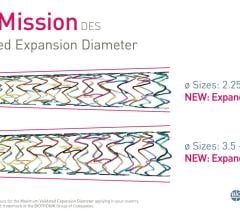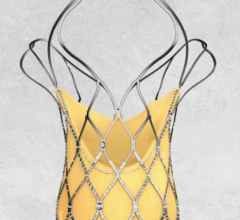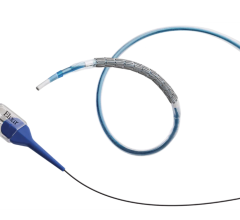May 14, 2007 — Two renowned experts debated the role of PCI and coronary artery bypass grafting (CABG) for the treatment of patients with left main coronary artery disease during the Annual Scientific Sessions of the Society for Cardiovascular Angiography and Interventions (SCAI) last week in Orlando, FL.
Roxanna Mehran, M.D., FSCAI, an associate professor of medicine at Columbia University, and medical director of the Data Coordinating and Analysis Center of the Cardiovascular Research Foundation, presented in favor of left main stenting. Her opponent, cardiothoracic surgeon Michael J. Mack, M.D., director of the Cardiopulmonary Research Science and Technology Institute in Dallas, argued in favor of CABG.
According to Dr. Mack, bypass surgery has long been the gold standard for the treatment of patients with disease of the left main coronary artery. In the mid- 1990s a large, respected clinical trial proved that surgery was superior to medical therapy. Later, bare metal stents failed to gain footing as an alternative to surgery after several studies showed unacceptable rates of death and repeat procedures.
Drug-eluting stents (DES) have markedly changed the landscape, said Dr. Mehran. This breakthrough technology once again raises the possibility that catheter techniques can safely and effectively treat left main disease.
“We now have devices that have the ability to deal with much more complex disease that would previously have been treated with bypass surgery,” she said. “It is time to start making comparisons of CABG and DES for disease involving the left main coronary artery.”
Available data on drug-eluting stents, although better than for bare metal stents, is too little, too soon, Dr. Mack said.
“Evidence from a few small studies that are underpowered for either death or heart attack does not warrant use of PCI, especially in view of concerns about late stent thrombosis, which is particularly worrisome in left main stenting,” he said.
Concerns about late stent thrombosis must be resolved, Dr. Mehran agreed. But the safety of bypass surgery deserves a closer look as well. Neuropsychiatric side effects are common following the use of a heart pump to circulate blood during surgery, for example. Equally important, a large percentage of bypass grafts become narrowed with plaque build-up within five years of surgery.
“In a prospective trial with hard endpoints of death and heart attack, I think we might find that drug-eluting stents stand up well to bypass surgery in left main disease—and if you could have a less invasive therapy, why wouldn’t you choose that?”
Drs. Mack and Mehran agreed that important data will come from the Synergy Between PCI With Taxus and Cardiac Surgery (SYNTAX) trial, which is comparing the Taxus drug-eluting stent to bypass surgery in approximately 800 patients with left main coronary artery disease. Results are expected to be reported in September 2008, said Dr. Mack, who is on the trial’s steering committee.
“Everyone needs to wait for the results of this randomized, controlled trial before changing from the gold standard,” Dr. Mack said.
Drs. Mack and Mehran debated the treatment of left main coronary artery disease on Friday, May 11.


 July 02, 2024
July 02, 2024 









